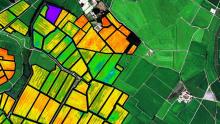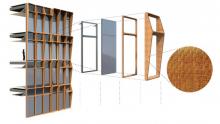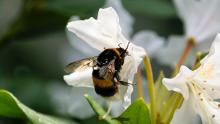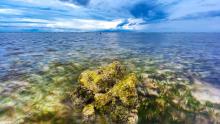New in-situ sensors to help save our seas

Innovative in-situ sensors have been developed by EU-funded scientists to monitor marine life and the chemistry of our oceans with a high degree of accuracy and to map crucial changes.

Innovative in-situ sensors have been developed by EU-funded scientists to monitor marine life and the chemistry of our oceans with a high degree of accuracy and to map crucial changes.

Farmers and agricultural authorities are now able to efficiently monitor rice fields, forecast future yields and identify potential threats to harvests of the world's most important staple crop thanks to cutting-edge technologies developed by an EU-funded project.

An EU-funded project has created an updated distribution map of Kenya's bird species. It uses the latest mobile technology to create dynamic data with input from the public and has become a valuable resource for conservationists and policymakers.

An EU-funded project is aiming to help guide the global transition from the high-carbon economies of today to the low-carbon economies of tomorrow by providing policymakers with the tools and information they need to implement effective, evidence-based climate strategies.

Olive oil, palm oil, seafood - for small producers of such goods, for example in rural parts of Asia, the cost of decontaminating wastewater to the required standard can be a heavy burden. EU-funded researchers have developed innovative photocatalytic technology to support them. Part of the work was carried out by a project partner in Malaysia.

Buildings in Spain and Estonia have been fitted with novel construction and insulation materials made from natural fibres and forest waste as part of an EU-funded project demonstrating innovative applications of biocomposites. These materials not only comply with building codes and boost sustainability but also reduce the risk of residents becoming sick.

EU-funded researchers have developed new ways to study the DNA of plants and soils used in winemaking as part of a wider effort to better understand how and when microbes help or harm different stages of production.

Good news for particularly busy bumblebees: you're not putting your immune systems at risk with all that hard work. EU-funded research has established that foraging motivation and other traits vary among individuals and colonies of the species, but that these differences don’t seem to affect their ability to fend off disease.

Sun, seawater and sewage: microalgae can thrive on feedstock that is freely available and the resulting biomass can be used to make high-value products such as biostimulants and biopesticides. But can this be done viably on a large scale? Let us demonstrate, say EU-funded researchers building an integrated biorefinery.

EU-funded researchers have developed new bio-processes to create high-value chemicals from the waste resulting from bio-diesel production. A true addition to the circular economy, their achievements promise a better and greener chemical industry.